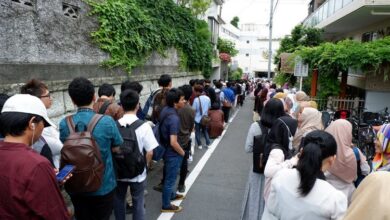
By Ali Syarief
Japan has long been admired for its discipline. From the Shinkansen’s near-perfect punctuality to workers apologizing for being a single minute late, the country has cultivated an image of precision and responsibility. Yet, a recent incident involving Japan Airlines (JAL) reveals that even the most disciplined cultures are not immune to human frailty.
A JAL pilot was found to be intoxicated before operating a flight, forcing the airline to issue a public apology. For the Japanese public, this was more than a case of individual misconduct—it was a crack in the cultural armor of reliability and order that the nation has carefully polished for decades.
Viewed cross-culturally, Japan’s reaction stands out. In the United States, for instance, aviation rules prohibit pilots from drinking alcohol within eight hours of duty—known as the “bottle-to-throttle rule.” Violators face permanent revocation of their license. In Europe, cases of drunk pilots have surfaced as well, but are often framed as isolated failures of personal judgment rather than a systemic embarrassment.
Japan, however, interprets such lapses differently. Shaped by a culture rooted in collective shame and responsibility, even a single violation is enough to be seen as a national disgrace. This explains why corporate apologies in Japan are delivered with such gravity, not only acknowledging the mistake but also signaling a cultural sense of shared guilt.
The irony lies in the everyday social fabric. Drinking, far from being taboo, is central to Japanese work culture. The tradition of nomikai—after-work drinking with colleagues—serves as a way to build trust and cohesion. Yet when that tradition seeps into professional duty, it collides violently with the very values of discipline and safety that define Japan’s identity.
From a cross-cultural lens, the JAL scandal is a reminder that discipline is not absolute. The U.S. might frame it as a legal breach, Europe as an individual flaw, but in Japan, it resonates as a cultural fracture. The world often holds Japan to a higher standard of orderliness, which means a single misstep in the skies can ripple far more deeply than elsewhere.
In the end, the JAL incident underscores a universal truth: no culture, however disciplined, is invulnerable to human weakness. The difference lies in how societies perceive and respond to those moments of failure—whether as personal lapses, regulatory gaps, or cultural blemishes on the national character.



